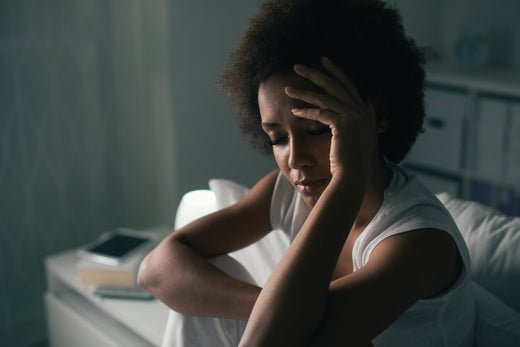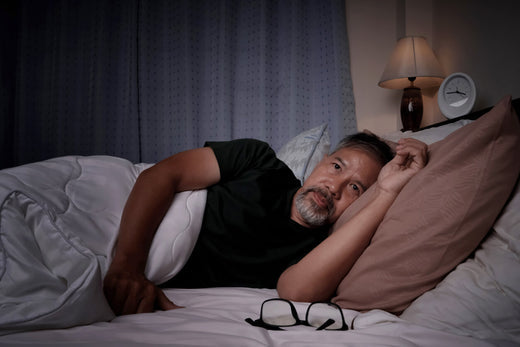Anxiety is a common mental health issue that affects millions of people worldwide. It manifests as persistent feelings of worry, fear, and nervousness, often interfering with daily activities and overall well-being. While anxiety can be overwhelming, there are effective strategies that can help you manage and overcome it. This comprehensive guide explores these strategies in detail, offering practical advice to help you regain control of your life.
Understanding Anxiety
Before diving into the strategies, it’s essential to understand what anxiety is. Anxiety is a natural response to stress and can be beneficial in some situations, such as when it helps you avoid danger or motivates you to prepare for a significant event. However, when anxiety becomes chronic or excessive, it can interfere with your daily life.
Anxiety disorders come in various forms, including generalized anxiety disorder (GAD), social anxiety disorder, panic disorder, and specific phobias. Each type has its unique symptoms, but common signs include:
- Excessive worrying
- Restlessness or feeling on edge
- Difficulty concentrating
- Irritability
- Muscle tension
- Sleep disturbances
Strategy 1: Practice Mindfulness and Meditation
Mindfulness and meditation are powerful tools for managing anxiety. These practices involve focusing your attention on the present moment and accepting it without judgment. This can help break the cycle of anxious thoughts and reduce overall stress.
How to Practice Mindfulness:
- Find a Quiet Space: Choose a quiet and comfortable place where you won’t be disturbed.
- Focus on Your Breathing: Take deep breaths, inhaling through your nose and exhaling through your mouth.
- Observe Your Thoughts: Notice your thoughts and feelings without trying to change them. Let them come and go like passing clouds.
- Return to Your Breathing: Whenever your mind wanders, gently bring your focus back to your breath.
Strategy 2: Cognitive Behavioral Therapy (CBT)
Cognitive Behavioral Therapy (CBT) is a highly effective treatment for anxiety. CBT helps you identify and challenge negative thought patterns and behaviors that contribute to your anxiety. By changing these patterns, you can reduce your anxiety symptoms.
Steps in CBT:
- Identify Negative Thoughts: Keep a journal to track your negative thoughts and identify patterns.
- Challenge These Thoughts: Ask yourself if these thoughts are based on facts or assumptions. Look for evidence that supports or contradicts them.
- Replace Negative Thoughts: Develop more balanced and realistic thoughts to replace the negative ones.
- Practice Behavioral Changes: Engage in activities that you have been avoiding due to anxiety.
Strategy 3: Physical Exercise
Regular physical activity is a natural anxiety reliever. Exercise releases endorphins, which are chemicals in the brain that act as natural painkillers and mood elevators. Exercise can also improve sleep, which is often disrupted by anxiety.
Recommended Activities:
- Aerobic Exercise: Activities like running, swimming, and cycling are particularly effective.
- Yoga: Combines physical movement with mindfulness, making it excellent for reducing anxiety.
- Walking: Even a daily walk can help reduce anxiety symptoms.
Strategy 4: Healthy Lifestyle Choices
Making healthy lifestyle choices can significantly impact your anxiety levels. Nutrition, sleep, and social connections all play a role in your mental health.
Tips for a Healthy Lifestyle:
- Balanced Diet: Eat a diet rich in fruits, vegetables, lean proteins, and whole grains. Avoid excessive caffeine and sugar, which can increase anxiety.
- Sleep Hygiene: Aim for 7-9 hours of sleep per night. Establish a regular sleep schedule and create a calming bedtime routine.
- Social Support: Stay connected with friends and family. Social interactions can provide emotional support and reduce feelings of isolation.
Strategy 5: Limit Alcohol and Caffeine
Both alcohol and caffeine can exacerbate anxiety symptoms. Caffeine is a stimulant that can increase heart rate and trigger anxiety, while alcohol can interfere with sleep and mood regulation.
Recommendations:
- Reduce Caffeine Intake: Limit coffee, tea, and energy drinks, especially in the afternoon and evening.
- Moderate Alcohol Consumption: If you drink alcohol, do so in moderation. Avoid using alcohol as a way to cope with anxiety.
Strategy 6: Develop Coping Mechanisms
Having a set of coping mechanisms can help you manage anxiety in stressful situations. These techniques can provide immediate relief and prevent anxiety from escalating.
Effective Coping Mechanisms:
- Breathing Exercises: Practice deep breathing to calm your nervous system.
- Grounding Techniques: Use the 5-4-3-2-1 technique to focus on your senses and bring yourself back to the present moment.
- Progressive Muscle Relaxation: Tense and relax different muscle groups to reduce physical tension.
Strategy 7: Seek Professional Help
If your anxiety is severe or persistent, it’s important to seek professional help. Mental health professionals can provide treatments such as therapy and medication to help manage your symptoms.
Types of Professional Help:
- Therapy: CBT, exposure therapy, and other therapeutic approaches can be very effective.
- Medication: Antidepressants and anti-anxiety medications can help manage symptoms.
- Support Groups: Joining a support group can provide a sense of community and shared understanding.
Strategy 8: Set Realistic Goals
Setting small, achievable goals can help you build confidence and reduce anxiety. Break down larger tasks into manageable steps and celebrate your progress.
Goal-Setting Tips:
- Start Small: Begin with simple, achievable goals to build momentum.
- Be Specific: Clearly define your goals and the steps needed to achieve them.
- Track Your Progress: Keep a journal or use an app to monitor your progress and stay motivated.
Conclusion
Overcoming anxiety is a journey that requires time, effort, and patience. By implementing these effective strategies, you can take control of your anxiety and improve your overall well-being. Remember that you are not alone, and help is available. With persistence and support, you can overcome anxiety and live a fulfilling, peaceful life.

 Amen University
Amen University








